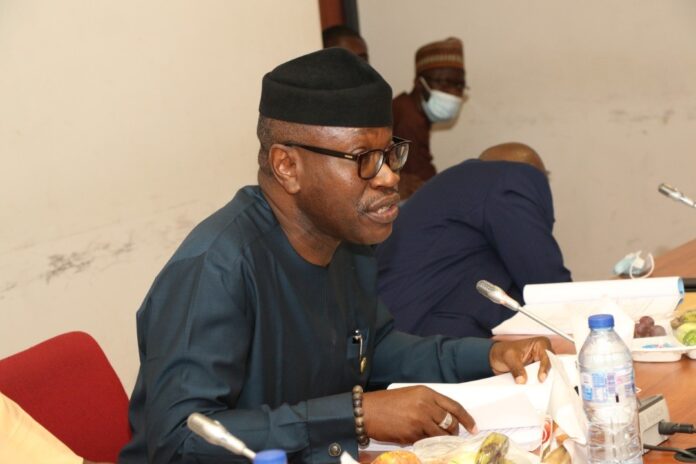The Managing Director of the Nigeria Export Processing Zones Authority (NEPZA), Prof Adesoji Adesugba, on Wednesday said that the a special economic zones dispute resolution centre has been set up to mediate in disputes among operators in the Zones.
In his speech at the 30th Anniversary of the free tree zones scheme in Nigeria, Adesugba said that the authority had also established Special Economic Zones Security outfit to professionally secure lives and investments in the Zones.
He said that in order to professionalise the scheme, a Special Economic Zones Training Institute has been set up in Kano to help bridge the knowledge gap in the Free Zones Scheme.
NEPZA, he said, has created an automated platform to digitize the operations of the scheme for enhanced efficiency and accountability.
Adesugba also unveiled some milestones of the FTZ Scheme Nigeria including the identification in 2014, the Free Zones Scheme as a pillar to drive the Nigerian Industrial Revolution Plan (NIRP).
“In 2016, the scheme was identified in the Economic Recovery and Growth Plan (ERGP) as a tool to accelerate and consolidate the implementation of the NIRP.
“In the extant Medium-Term National Development Plan of 2021-2025, the Free Trade Zones Scheme is recognized as a key driver to economic growth and development leading to its operators being appointed into the Technical Working Group tasked with the formulation of the Plan.
“Recently in October, 2022, Mr. President signed the Startup Bill into Law with Section 42 identifying the Free Zones scheme as the policy tool to spur growth and development of Startups and incubators in the country,’’ he recounted.
He said that there was no gainsaying that the ultimate objective of Nigeria adopting this global business model was to fast track economic growth and industrialization.
“Suffice to therefore, say that the decision of the Nigerian Government to key into this concept has remained legendary as the model has become a key driver of the nation’s economy.’’
The presence of key global enterprises in the Zones is a testament to this assertion in speedily contributing to the growth of the Nigerian economy.
He listed some of the enterprises as Dangote Industries Free Zone; the Deep-Sea Port in Lagos; Lekki Free Trade Zone; Eko Atlantic City; OgunGuandong; and LADOL.
Currently, NEPZA exercises regulatory oversight on 46 Free Trade Zones, out of which forty-four (44) are private-owned and two (2) fully owned and managed by the Authority on behalf of government.
“Even the two are undergoing a process of Concession to private entities.
“These business enclaves harbour over 600 enterprises providing 150,000 direct employment and an estimated 400,000 indirect employment.
“To date, the Zones have attracted over US$30 billion investments which is expected to exponentially increase in the next few years with our sustained incentives and aggressive investment drive across the world.’’
He expressed profound appreciation to President Muhammadu Buhari’s administration for the approval given for the establishment of six Special Economic Zones and the earmarking of four International Airports as Free Trade Zones in 2021.
Under the administration, he said that the scheme has been adopted as the policy thrust for economic growth, development and prosperity.
“Indeed, 13 Free Zones have been licensed so far by this administration.’’
He advised many agencies of governments to stop their incursion in the zones because there are laws guiding the operations of the scheme.
The Central Bank of Nigeria (CBN), should urgently established onshore banking in the zones.




